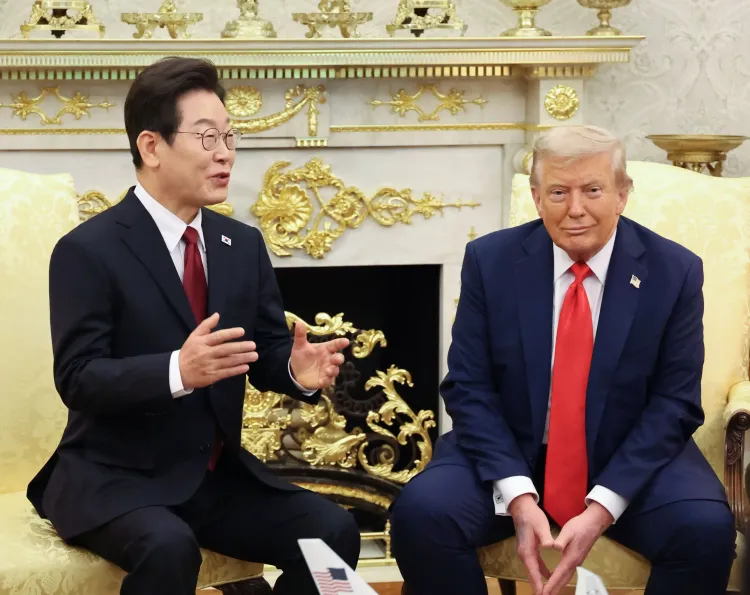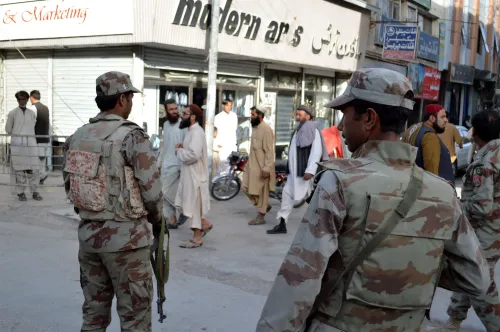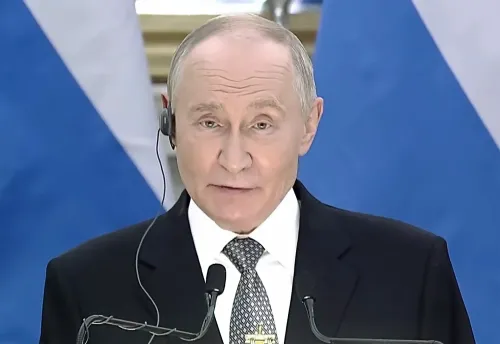Will South Korea's Operational Command Transfer from the US Happen Within Lee's Term?

Synopsis
Key Takeaways
- OPCON transfer is a key policy goal for President Lee Jae Myung.
- The transfer aims to enhance South Korea's military autonomy.
- Delays in the transfer are linked to North Korean threats.
- A roadmap for a conditions-based transfer is in development.
- Regional security dynamics will influence the transfer's success.
Seoul, Sep 16 (NationPress) The government of South Korea has officially announced the transfer of wartime Operational Command (OPCON) from Washington to Seoul as a key policy objective for President Lee Jae Myung during his five-year term.
This initiative was part of a comprehensive list of 123 significant policies approved in a Cabinet meeting led by President Lee earlier today, following a proposal from a presidential committee outlining a roadmap for the new administration.
The government stated, "(The government) intends to pursue the transfer of wartime OPCON within (Lee's) term, underpinned by a resilient South Korea-US alliance, to ensure that South Korean military forces can effectively lead combined defense operations in both peace and wartime situations," as reported by the Yonhap News Agency.
To facilitate this transfer, the government plans to rapidly develop a roadmap for a "conditions-based" OPCON transfer and enhance the military's essential capabilities.
Historically, South Korea transferred operational control of its armed forces to the US-led UN Command during the Korean War (1950-53). This control was subsequently transferred to the Combined Forces Command of the two allies in 1978. While South Korea regained peacetime OPCON in 1994, wartime OPCON continues to be held by the US.
Since then, the transition has remained a critical issue between the allies, with past administrations striving to finalize the OPCON transfer but encountering delays due to shifts in the security landscape, especially concerning North Korea's military threats.
The OPCON transfer was initially scheduled for 2015 but was postponed as the allies agreed in 2014 to a conditions-based handover in light of the escalating nuclear and missile threats from Pyongyang.
The current conditions-based OPCON transfer that the allies are pursuing encompasses South Korea's capabilities to command combined Korea-US forces, its strike and air defense capabilities, and a regional security environment favorable for such a handover.
In a three-phase program to assess whether the necessary conditions are met, the allies conducted the initial operational capability test in 2019 but have yet to finalize the full operational capability test, which represents the second stage of the process. The full mission capability test constitutes the final step of the verification program.
However, given North Korea's advancing nuclear and missile threats, potentially strengthened by its increasing military cooperation with Russia, along with evolving security dynamics in the region, it remains uncertain whether conditions, including a "conducive" regional security environment, can be achieved by 2030.
Additional defense policy objectives confirmed on Tuesday included the transfer of responsibilities from the Defence Counterintelligence Command and the eventual dissolution of the organization implicated in the failed martial law attempt by former President Yoon Suk Yeol.
The government also aims to enhance its three-axis deterrence system to counter North Korean threats and promote a phased implementation of a space strategy command.










